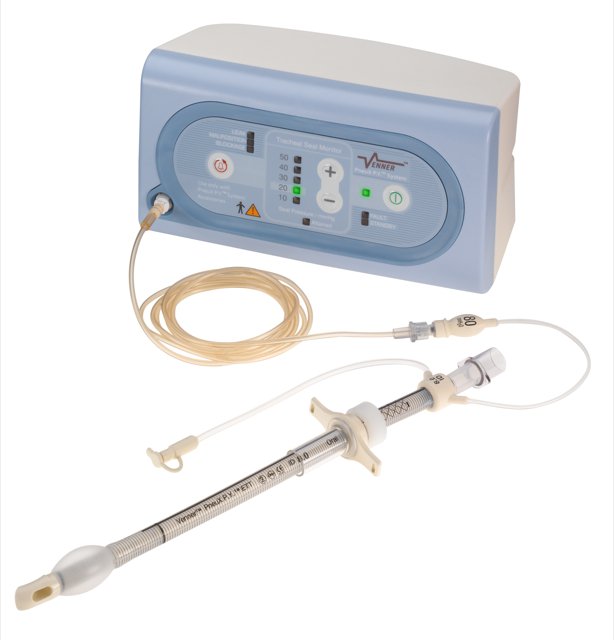An inventor can easily give up on an idea at endless stages, especially when encountering barriers along the way. Determination and perseverance make ideas become realities.
The PneuX idea arose in 1996 and has been extensively developed, tested and improved ever since. Pneumonia is the most common cause of nosocomial death in the ICU affecting 20000 patients per year in the NHS.
Pneumonia is caused by aspirating contaminated secretions into the airway and past the cuff to the lungs.
The PneuX System has been designed to prevent pneumonia, by forming an optimal tracheal seal, to reduce aspiration risk. The PneuX system consists of a low-volume, low-pressure cuffed tube and tracheal seal monitor. The airway seal is formed because of design of the calibrated soft silicone cuff, completely preventing leakage of bacteria compared to alternative ICU tube cuffs.
The PneuX has multiple secretion drainage ports, in order to prevent VAP and minimize tracheal injury. The tracheal seal monitor continuously measures pressure, and then generates the correct cuff pressure between the cuff and the trachea, to continuously create an effective seal.
A large independent NHS study showed the PneuX significantly halving pneumonia rates, therefore improving patient safety and saving lives, in addition to saving the NHS £700 per PneuX used (as reported by an independent cost evaluation by the University of Birmingham).
Despite this there remain numerous barriers to implementation for patient benefit due to CCG payment structures whereby unacceptable excuses not to introduce preventative measures (despite clinical engagement and desire to do so) from NHS managers have included “we generate an income from patients that develop pneumonia because of their increased length of stay” and “if we shorten the time that patients spend in ICU this will reduce the income”.
This is madness and appalling for patient care that revolves around a perverse financial system, which does not serve our patients and blocks innovation in order to maintain income to the hospital.
This hinders two of the core principles of the NHS: patient safety and innovation, and we should not stand for this.
Conversely, the Citizens’ Senate Patient’s Perspective gave 100% positive reports stating that the PneuX “is an opportunity that cannot be ignored”, they “urge organizations to ensure the PneuX system is adopted” being “hugely impressed with the benefits to patient safety” and after reviewing the “costs and benefits, we are keen for wide scale adoption.”
Currently, the PneuX is having milestones of success on the NHS Innovation Accelerator pathway to implementation.
Leaders of institutions need to establish their priorities: whether current financial incentives to maintain high rates of pneumonia, thereby directly harming patients, can override the patient safety benefits of adopting the PneuX which significantly reduces pneumonia rates and improve patient outcomes, in addition to achieving overall cost savings to the NHS. Meanwhile policy makers need to adapt the financial structures to facilitate good care.

